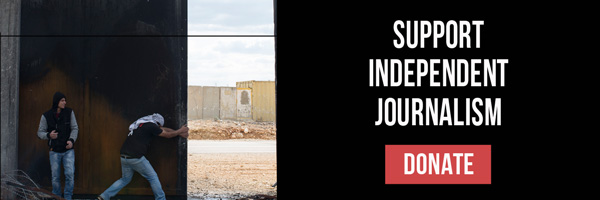Instead of simply canceling your show in Tel Aviv, cross the checkpoints and the separation wall and do what most pop icons have yet to do: perform in the West Bank. An open letter to Lorde.

Dear Lorde,
You may have stumbled upon my words before. Three years ago, your art and public persona inspired me to produce something ambitious. “The Israel-Palestine Lorde Diaries,” a whimsical fan’s journal, appeared on this site in no less 15 installments. In them, I described the difficulties I faced while trying to create a bilingual, bi-national, Israeli-Palestinian tribute to your first album, Pure Heroine.
In this ancient, troubled land, everything is extra political. Prospective Palestinian artists were initially excited about the project, before backing out. They love your stuff. They wanted to participate. They had nothing personal against me or my producer/partner. Yet singing “Team” with us, members of a society that keeps millions of their brethren under military rule, deprived of basic rights, would have created a false sense of normalcy.
I am bringing this up now because you appear to be facing a challenge that isn’t entirely unrelated. Last week, it was announced that you will be playing Tel Aviv in June of next year. Soon after the news broke, eloquent proponents of the BDS movement urged you to join them in boycotting Israel, in order to protest its occupation policies. [Update: Lorde announced she would be canceling her show in Israel shortly after this post was published]
You have surely read much on the topic already, and yet I feel obliged to add a few more words from my perspective as an Israeli who loves his society and yet feels that it is implicated in a horrid crime. Actually, I’m about to add many words, so please forgive the volume of what’s to come. These matters deserve some depth. And besides, I am not preaching to the choir here.
The dilemma itself is simple. Your Israeli fan base is broad and enthusiastic; it would be a shame to disappoint them. On the other hand, you are politically minded. If I were an international artist and knew what I know of the occupation, I would likely boycott.
One girl’s story
If only your Israeli fans shared the same knowledge, things would be simpler. Sadly, we have been educated to avoid seeking critical information on local politics and, when presented with it, to reject it as slander.
I will use one story to illustrate. You may have already encountered it, since it is currently being featured prominently in the media. It is the story of a small Palestinian village called Nabi Saleh, of a girl who grew up there, of what that girl did in one angry moment, and of how we, as Israelis, talk about it.
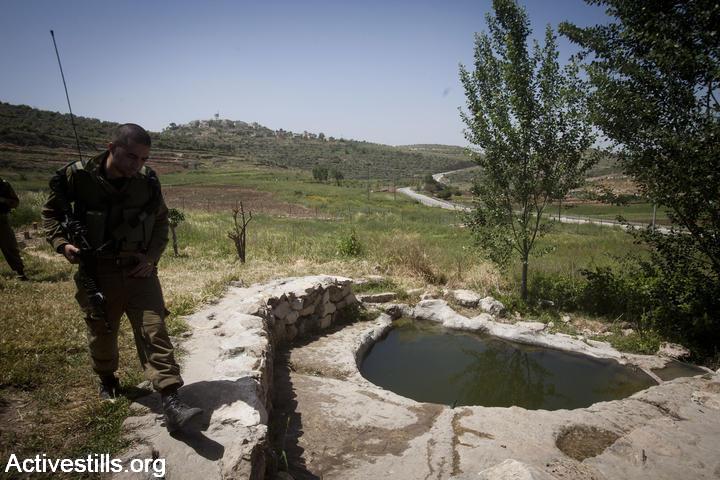
As with many West Bank Palestinian villages, the state confiscated a portion of Nabi Saleh’s land in favor of an Israeli settlement. The settlement was built across the valley. The two communities now stare at each other in a never ending blinking contest. On the hill to the south live the settlers, who are full right citizens of the state, on the hill to the north: non-citizens. The settlers get water from their taps without problems, the Palestinians face sporadic water shortages. The settlers fear the Palestinians and the Palestinians fear the army.
A few years ago, when the village’s ancient spring was taken over by the settlers under the protection of the army, the villagers decided to overcome their fear and make a stand. They began staging weekly demonstrations. Being non-citizens, they are legally forbidden from holding even the smallest protest, and the army cracked down severely. They showered the village with so much tear gas that even the neighboring settlers began to suffer. Gas canisters were launched into houses through windows. In one instance, a soldier shot a canister directly into the face of a demonstrator point blank, killing him.
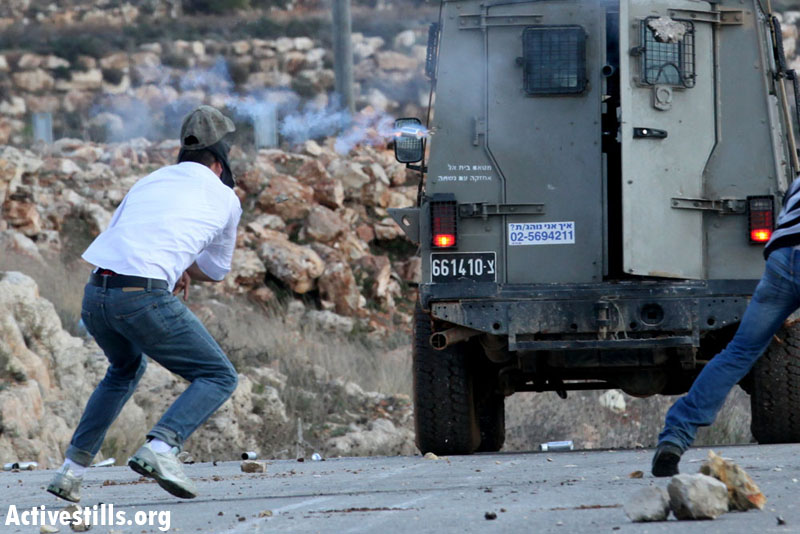
Ahed Tamimi was about 10 years old when the demos began. Her family’s home is situated at a vantage point and would often be taken over by the soldiers to serve as a sniper’s position. As a child, she would yell at the soldiers to back off. Naturally, that bore little effect.
She is no longer a child. She is the age you were when “Pure Heroine” came out — eloquent and smart, and sporting a wild head of hair that brings your own iconic look to mind. She is done with yelling, and last week, when the soldiers came, she shoved, and even punched them.
The soldiers reacted mildly. (One later confessed he would have acted differently had cameras not been present). The video went viral and one night later, before dawn, soldiers came into the house and arrested Ahed. Her mother followed her to the military base and was herself arrested for “incitement.”
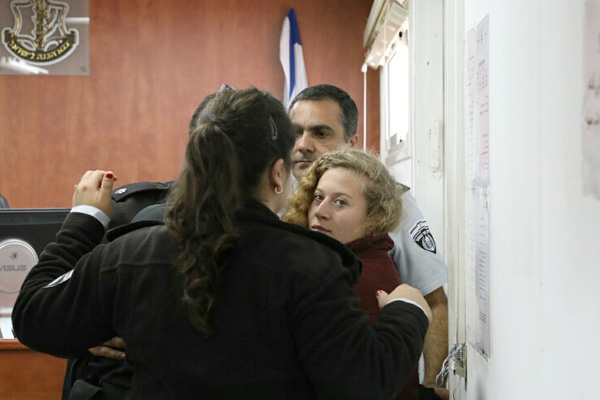
As I write this. Nearly a week down the line, Ahed is still being interrogated. I urge you use your imagination: in places like the West Bank, interrogation takes many forms.
At this point I will let go of my own narrative, formed through travel and conversation (I visited Nabi Saleh before and after the incident) and present you with what the Israeli media presents your fan base. In a nutshell: a rude girl, the member of an inherently violent nation and a potential terrorist herself, dared attack a member of the Jewish people’s defense forces. Being unarmed, she clearly couldn’t cause much physical damage. Her aim, then, was media damage — the kind that would further the perpetual defamation of the Jewish people.
Teens buy into this. Rebellious teens! And why would they not? All dissenting voices in Israeli society have been marginalized out of range. Meanwhile, voices of condemnation are everywhere. Following Ahed’s so-called “attack” on the soldiers, Israel’s ambassador to the U.S. suggested that the Palestinians dressed Ahed up in “American clothes” in order to draw sympathy. Senior Israeli journalist Ben Caspit praised the soldiers for their calm, and suggested that revenge would take place “later, in the dark, when no one is watching.”
Now that Ahed is indeed in that dark, the media discussion in Hebrew remains fixed around the mercifulness of the heavily armed soldiers. Empathy for the “enemy” is out of the question, and a deeper discussion of the village’s history and punishing reality is largely absent.
Don’t bring a ‘message of peace’
It is possible that Ahed will be free by June, but there will still be plenty of Aheds in custody when (and if) you land at Ben Gurion Airport. West Bank children and teens are arrested on a nightly basis, especially for stone throwing, but also as a tool of intimidation. Since they are non-citizens, Israel does not consider itself obliged to follow the internationally-accepted standard for handling minors in their case.
Imagine a girl who fits Ahed’s profile being “interrogated” while you are on stage. Imagine you singing “Yellow Flicker Beat,” a song that celebrates the bravery of a fictional young woman, Katniss Everdeen from the Hunger Games, to an audience that has been indoctrinated to support the military arrest of teenagers who are detained without charge and due process.
The irony is obvious, and I doubt not that you would be too conscientious to simply ignore it. Further, the boycott movement describes itself as pushing non-violently toward change, and I would hardly blame you for hoping to participate in changing the reality hitherto described.
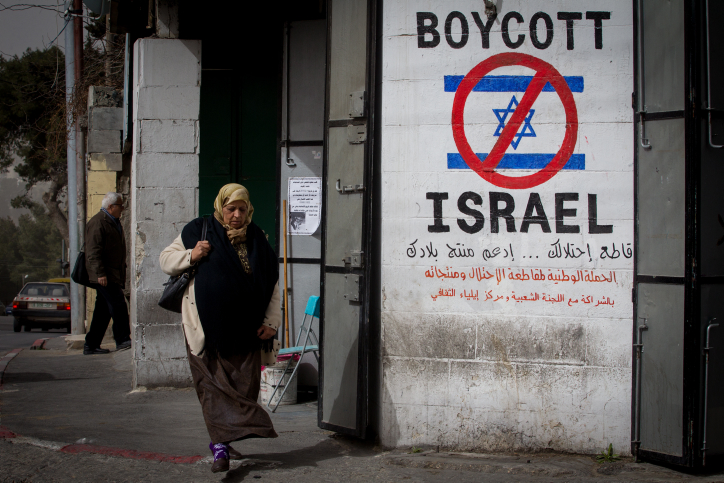
But then, if you decide not to come, what would the audience make of it? They are deprived of any profound knowledge of this reality. Strung in a paranoid paradigm, the media and the education system keep repeating the same mantra: it is us against the world. According to this doctrine, whoever gives our haters the time of day is our hater as well, or is at least gullible enough to cut a deal with the devil. The long and tragic history of the Jewish people, and the persistence of anti-Semitism worldwide, reinforce these notions and are often conjured by our politicians.
Once a mantra is repeated often enough, it becomes a solid, unquestioned truth. Most young Israelis have no concept that Palestinians in the West Bank and East Jerusalem are non-citizens. They are discouraged from visiting these places, sometimes by law. A language barrier further forbids them from hearing voices from across the divide. Without the context of violent military rule, they read all Palestinian resistance as a manifestation of radical Islam and blind hate. By the time they are themselves conscripted, these notions are solidified enough to have them become accomplices in the oppression of Palestinians.
I fear that nothing you will stay onstage or reflect offstage will fundamentally alter this reality, and beg you not to carry a “message of peace.” In the context of citizens vs. non-citizens, “peace” is too often a euphemism for subjugation. The strong decide what peace looks like — and their vision seldom involves equality.
Imperfect places
So what should you do? Clearly omitting “Yellow Flicker Beat” from your setlist will suffice. You may have already reached a decision, and any decision you make is fine by yours truly. A fan is a fan through fire and rain.
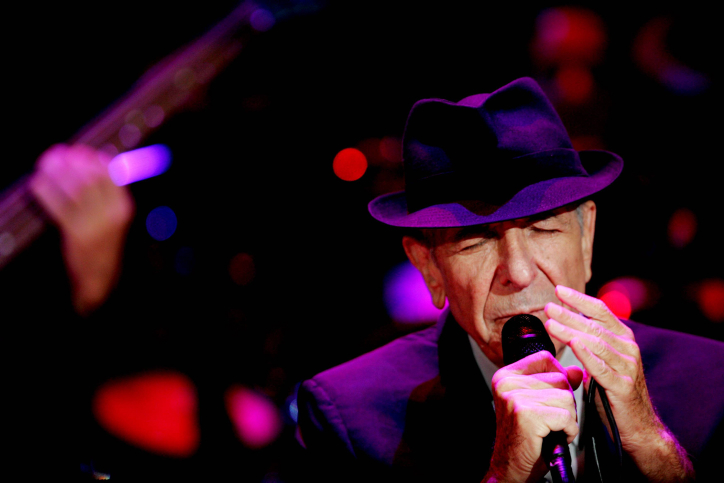
But in case you have not, your famous style tells me that you are trying to think outside the box. It is this kind of thinking that sorted out my blunder with the tribute album. To get the project moving, I had to break up my own identity. The album was not, ultimately, a Hebrew and Arabic one. All Israeli artists sang in the languages of their grandparents: French, Russian, Yiddish, and yes, Hebrew too.
As soon as we undid the concept of “Israeli identity” ever so slightly, went were able to view the country as a puzzle of identities. The Palestinians identified themselves as a piece of that puzzle and joined in. We had no capacity to offer them their rights, but we did step out of the tribalist cul de sac, which is the first thing we will all have to do for things here to change.
We broke the dichotomy, but to do so we had to first be part of it. You come in as an outsider, and so your options are more limited. From what I can see, they are mostly about venue.
One obvious solution would be to play both Tel Aviv and Ramallah. Leonard Cohen opted for that on his final tour, but no Palestinian venue would have him if he played Israel. The rationale, again, is anti-normalization. Playing two shows in two towns would create a false sense of healthy symmetry and would allow the world to further ignore the fate of Nabi Salah and hundreds of other Palestinian towns and villages like it.
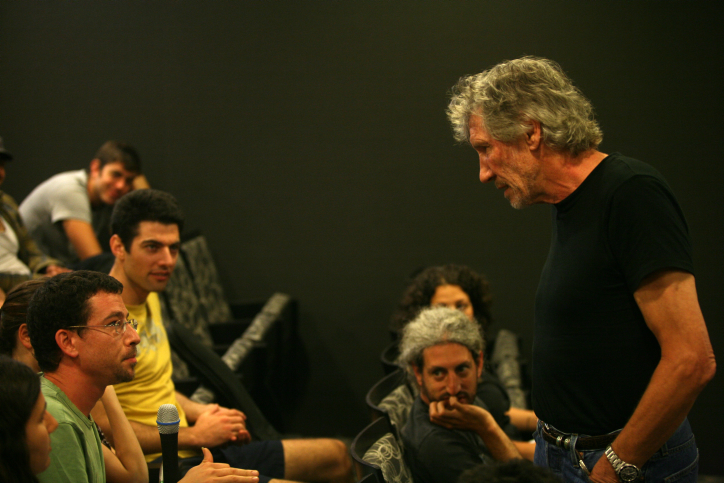
Trying to find a spot “in between” is tricky. Roger Waters, an outspoken advocate for BDS, attempted it once. He staged a concert at Neve Shalom\Wahat al-Salaam, a tiny hamlet within Israel where Israeli Jews and Palestinian citizens of Israel (also known as Israeli Arabs) live together. Despite traffic issues, the evening went well, yet I doubt that Waters would repeat it, having since explored the issues further. What he did there was precisely to “carry a message of peace.” Yet peace is idle without equality. Palestinian fans from the West Bank could not attend — they are kept behind a wall and military checkpoints.
Rocking Palestine
A more feasible possibility would be to perform in the West Bank. Trust me, some Israeli fans will make it there. Israeli law does prohibit us from visiting the larger cities in the West Bank, but most of the territory is entirely open for us to visit, and the barrier is completely open before us.
The Israeli government wishes to dissuade us from going where new perspectives can be obtained. Big red signs have been fixed outside each Palestinian town in the West Bank, warning Israelis that venturing beyond them is “dangerous to their lives.” These signs further dehumanize an anyway dehumanized society.
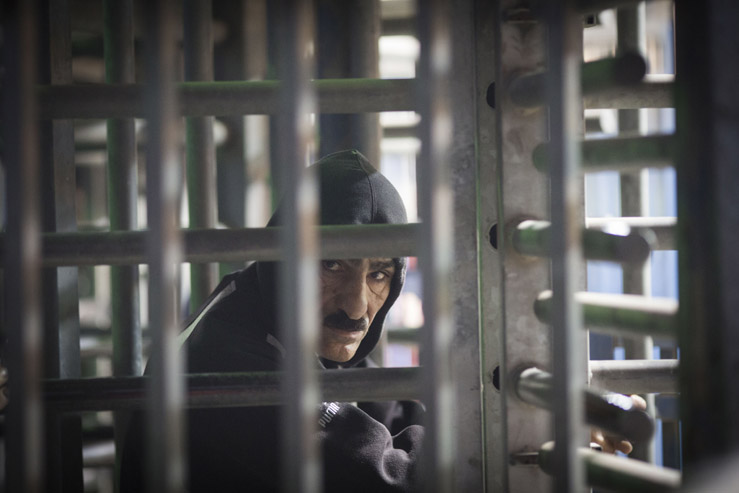
By making your Israeli fans travel past these signs, you will open new horizons for them. Not all venues even call for civil disobedience on their part. Israelis are legally allowed to visit the new open-air theater in the Palestinian town of Rawabi, which seats 12,000, as well as the venue at Solomon’s Pools near Bethlehem. Having said that, there is nothing wrong with a bit of civil disobedience. White teeth teens are famously out. Come sing for the ones who dare.
There is a lot to be said for all-out boycott. It’s clean-cut and sends a clear message, but since not everyone is equipped to understand the message, and since things in this land — or this world for that matter — are seldom clean-cut, I would pick the final option. Yes, you will be met with a lot of misunderstanding from pro-Israel advocacy groups, but a full boycott would produce the same response, or worse. Yes, your Israeli fans may feel forsaken. It is up to you to clarify that they are not. Ramallah is only 40 kilometers from Tel Aviv.
Finally, playing the West Bank carries a special edge: Ahed Tamimi, her sisters and her friends, all of whom are banned from visiting Tel Aviv, could catch your show. Rawabi is literally 10 minutes away from Nabi Saleh. I have no doubt that this girl is your fan, and after what she has done and what she is going through, she deserves a front row seat.
Happy holidays and all the best,
Yuval


